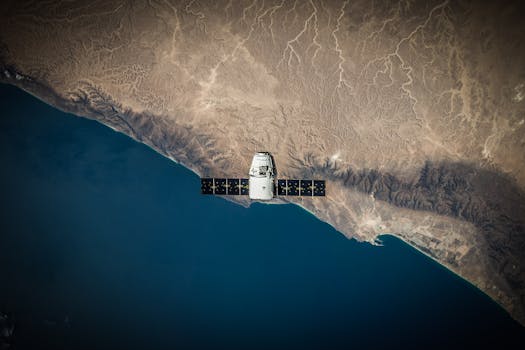The Future of Satellites: Revolutionizing Global Communication and Exploration

The Future of Satellites: Revolutionizing Global Communication and Exploration
Future of satellites is an exciting and rapidly evolving field, with new advancements and innovations emerging every day. The future of satellites is poised to revolutionize global communication and exploration, with the potential to transform the way we live, work, and interact with one another. From improved connectivity to enhanced Earth observation, the possibilities are vast and exciting.
Satellites have been a crucial part of our daily lives for decades, providing us with vital services such as navigation, communication, and weather forecasting. However, the next generation of satellites is set to take this to a whole new level, with the introduction of new technologies and capabilities that will enable faster, more reliable, and more secure communication and data transfer.
Advances in Space Technology
One of the key drivers of the future of satellites is the rapid advancement of space technology. New materials, designs, and manufacturing techniques are enabling the creation of smaller, lighter, and more powerful satellites that can be launched into space at a lower cost. This is making it possible for more organizations and countries to access space, and is driving innovation and competition in the industry.
Another important development is the emergence of new satellite constellations, such as OneWeb and Starlink, which are designed to provide global internet connectivity. These constellations consist of hundreds or even thousands of small satellites that work together to provide high-speed internet access to remote and underserved communities around the world.
Enhanced Earth Observation
Satellites are also playing an increasingly important role in Earth observation, providing vital data and insights that can be used to monitor and manage our planet’s resources. From tracking climate change and deforestation to monitoring ocean health and natural disasters, satellites are enabling us to better understand and respond to the challenges facing our planet.
One of the most exciting developments in this area is the emergence of hyperspectral imaging, which allows satellites to collect detailed data on the composition and health of crops, forests, and other ecosystems. This information can be used to optimize crop yields, predict and prevent natural disasters, and develop more effective conservation strategies.
Challenges and Opportunities
While the future of satellites is full of promise, there are also significant challenges to be addressed. One of the biggest concerns is the growing problem of space debris, which can pose a hazard to operational satellites and other spacecraft. There is also a need for more effective regulation and governance of the satellite industry, to ensure that it develops in a sustainable and responsible way.
Despite these challenges, the opportunities presented by the future of satellites are vast and exciting. From enabling global communication and exploration to enhancing Earth observation and driving innovation, the potential of satellites is limitless. As we look to the future, it is clear that satellites will play an increasingly important role in shaping our world and improving our lives.




